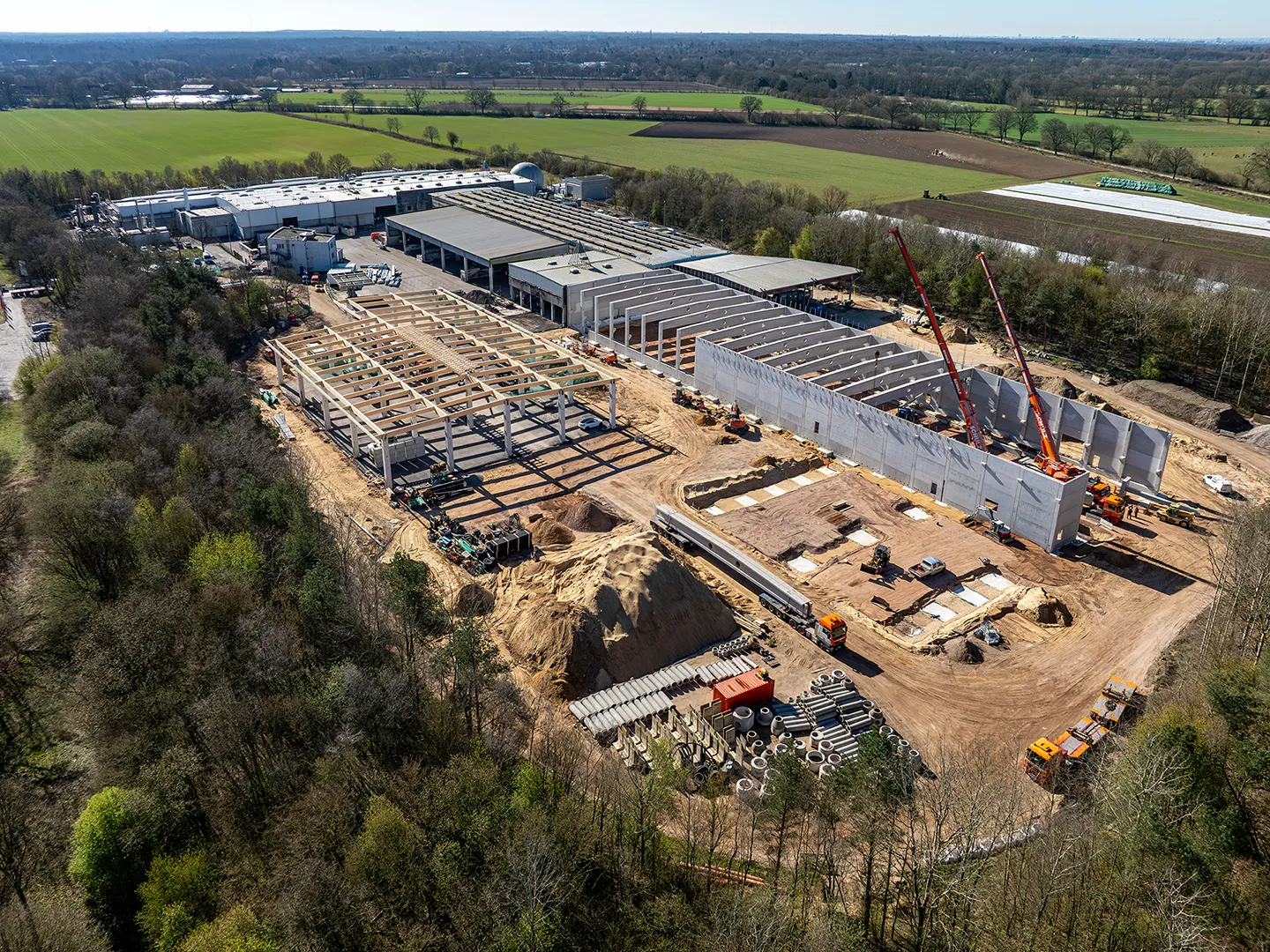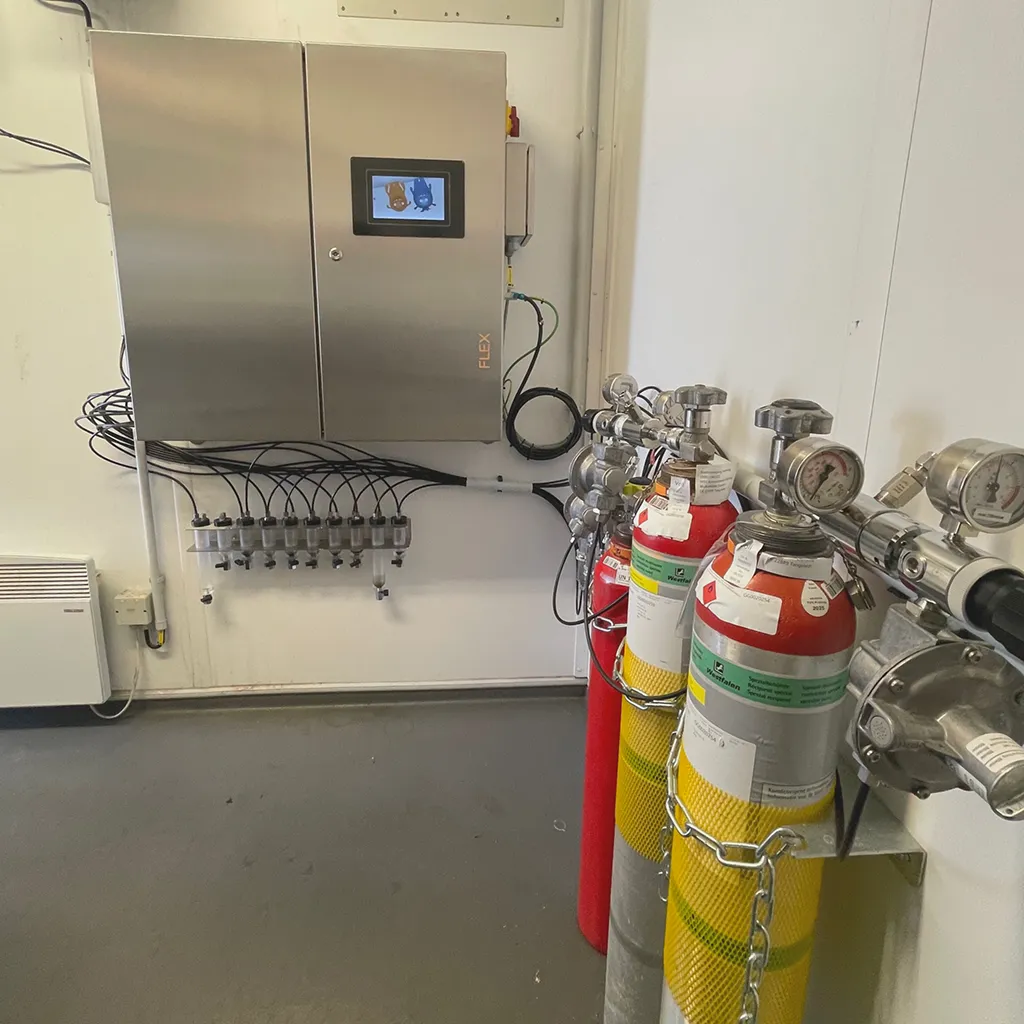Innovative Concept Increases Biomethane Yield Using Green Hydrogen
At the Bützberg Biogas and Composting Plant (BKW), operated by MVR Müllverwertung Rugenberger Damm GmbH – a company of the Stadtreinigung Hamburg (SRH) – self-generated green hydrogen (H₂) is being used to increase the yield of biomethane.

Photo by AWITE
The BKW processes the contents of 150,000 organic waste bins from the Hanseatic city each year in three dry fermentation lines, producing around one million cubic metres of biomethane and 17,000 tonnes of compost. In order to enhance the biomethane yield, the biogas plant has been combined with Power-to-Gas (PtG) technology. For this purpose, green hydrogen is injected into 14 of the total 21 garage fermenters. The hydrogen is generated using a 1,0 MW electrolyser. The electricity required for this process is sourced from renewable energy via a Power Purchase Agreement (PPA).
The additional hydrogen is converted into methane during the biogas process through microbial methanation, reacting with the CO₂ present. This enables an increase in biomethane yield of up to 20%. This combination of dry fermentation and PtG technology is unique in Germany. Further comprehensive information on the project can be found here:Project Overview 6.2 – Northern Germany Real Laboratory.
Three AwiFLEX XL gas analysis systems are used to monitor the process. Two identical systems each monitor seven garage fermenters and the main gas collection line of the digestion system. To ensure reliable monitoring during the start-up and shut-down of the individual fermenters, continuous measurement of CH₄, CO₂, O₂, and H₂ is carried out. Depending on utilisation, the measurement can be switched to each individual fermenter. H₂S is also measured intermittently.

The third gas analysis system continuously monitors gas quality before and after the biogas upgrading process. It is equipped with an automatic range-switching feature for hydrogen. Depending on the amount of H₂ dosed into the process, it switches between an electrochemical sensor (0–50,000 ppm) and a thermal conductivity sensor (0–100%).
Hydrogen is highly reactive, volatile (14 times lighter than air), and the smallest chemical element, with a high diffusion rate. These properties are taken into account in the gas analysis system design through the use of PTFE (Teflon) tubing, detonation flame arrestors, and internal hydrogen monitoring.
All gas analysis systems feature automatic calibration, gas coolers, remote access, and redundant gas sampling pumps to ensure maximum measurement accuracy and reliability.
PtG technology offers numerous advantages, including improved CO₂ efficiency in the biogas process, chemical storage of renewable electricity, utilisation of power surpluses, and integration into the existing gas and electricity infrastructure – to name just a few.
We are proud to contribute to this innovative concept from MVR and would like to thank them, as well as the SRH Group, for the exciting project and the excellent collaboration. We look forward to seeing how the BKW continues to evolve.
For more information visit: awite.de
News Categories
- » NEWS HOME
- » Automation & Robotics
- » Industry 4.0
- » Material Handling
- » Sensors
- » Quality & Testing
- » Machine Vision
- » Laser & Optics
- » Metalworking
- » Motion Control & Drives
- » Hydraulics & Pneumatics
- » Process Industry
- » Renewable Energy
- » Agriculture
- » Home & Office Furniture
- » Additive Manufacturing
- » Environmental Tech



